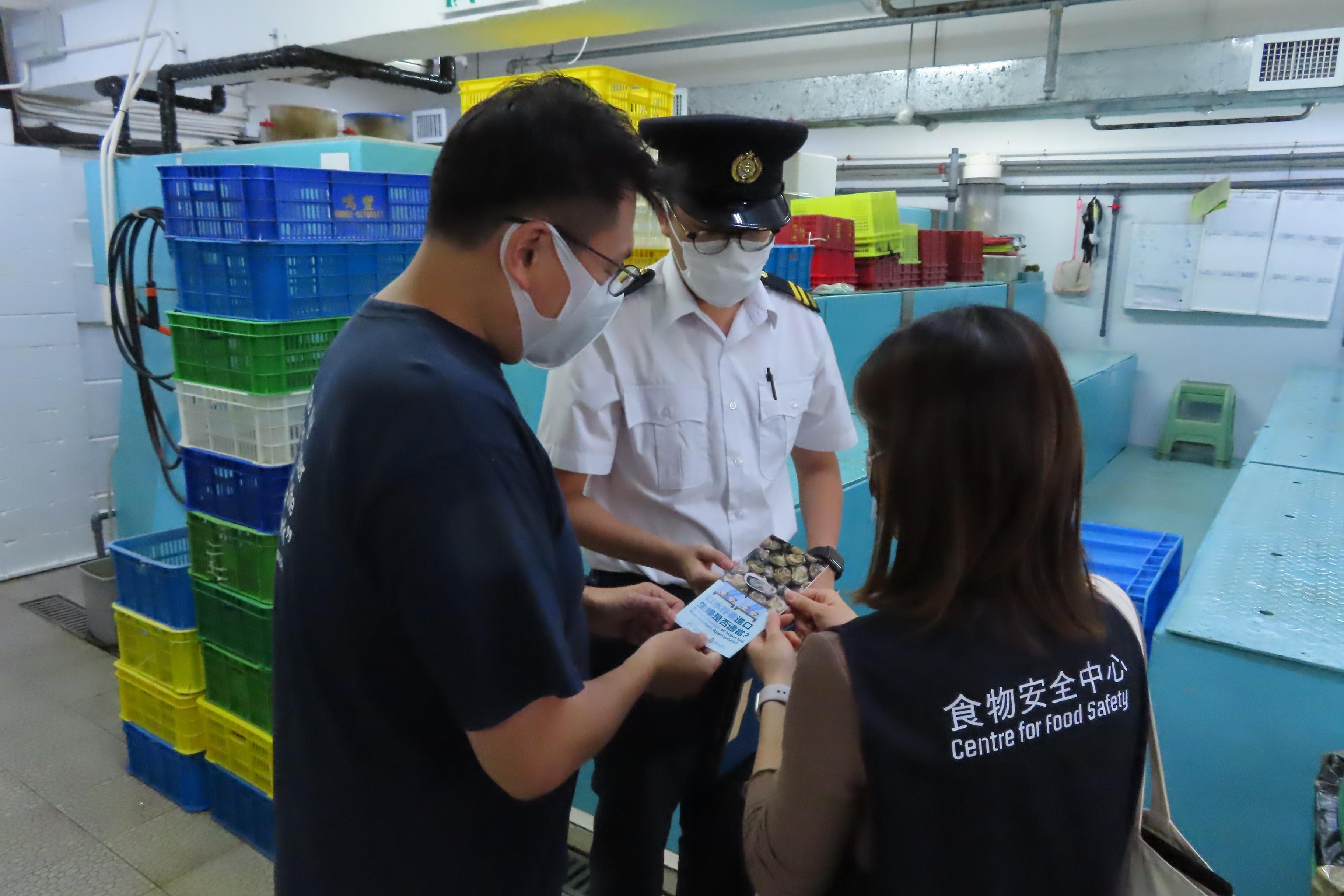FEHD strives to ensure food safety of oysters to be eaten in raw state (with photo)
To safeguard food safety and protect public health, the Centre for Food Safety and the Environmental Hygiene Branch of the Food and Environmental Hygiene Department (FEHD) have enhanced inspections recently to various licensed food premises across the territory to ensure that oysters to be eaten in a raw state (raw oysters) be stored at the proper temperature.
A spokesman for the FEHD said today (April 20), "The FEHD has launched a series of operations over the past week (April 14 to 20) and stepped up inspections in various districts. No irregularities have been detected so far. Health advice was also given, and food safety pamphlets were distributed to operators and staff of food premises regarding the proper way of storing raw oysters."
As stipulated under the permit/licensing condition of the restricted food permit or written permission issued by the FEHD, all raw oysters ready for immediate consumption shall be kept in a refrigerator or compartment of a refrigerator separated from other food items at a temperature between zero and four degrees Celsius. If a breach of the aforesaid condition is found, FEHD officers will, depending on the actual circumstances, issue verbal warnings or warning letters, and may even consider cancellation of the permits/licences of relevant premises. Furthermore, wet storage could tamper with the quality of raw oysters which are ready for immediate consumption such that they may not be compatible with the food standards attested by the health certificates.
"Wet storage refers to the practice of storing live oysters temporarily by submerging them under water or heavy spraying. Under the Code of Practice for Fish and Fishery Products, the Codex Alimentarius Commission specifies that live bivalve molluscs must not be re-immersed in or sprayed with water after they have been packaged and have left the distribution centre. The temperature of a saltwater tank is usually not low enough to suppress bacterial growth, while mixing of raw oysters from different batches in the same water tank also facilitates cross-contamination. Traders should store raw oysters intended for direct consumption at a controlled, uninterrupted cold chain for the shortest time possible to ensure food safety," the spokesman added.
The spokesman reminded that as oysters feed by filtering a large volume of seawater and absorbing suspended food particles therein, bacteria (e.g. Vibrio parahaemolyticus and Vibrio vulnificus) and viruses (e.g. norovirus and Hepatitis A virus) may accumulate in them if they are grown in or harvested from contaminated water. Consuming oysters without thorough cooking might risk direct intake of these microorganisms. Susceptible groups, such as pregnant women, young children, the elderly and people with weakened immune systems or liver diseases, should avoid eating them.
The FEHD will continue to step up inspections to ensure that the licensing/permit conditions are observed by the licensees/permit holders or relevant operators, and the hygienic standards stipulated in the laws are met.

To safeguard food safety and protect public health, the Centre for Food Safety and the Environmental Hygiene Branch of the Food and Environmental Hygiene Department (FEHD) have enhanced inspections recently of various licensed food premises across the territory to ensure that oysters to be eaten in a raw state (raw oysters) be stored at the proper temperature. Photo shows FEHD officers distributing food safety pamphlets during an operation to staff of food premises regarding the proper way of storing raw oysters.
Ends/Wednesday, April 20, 2022





